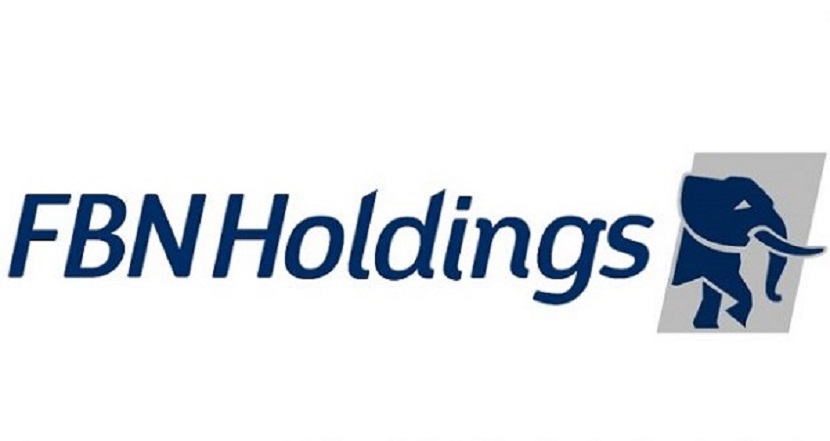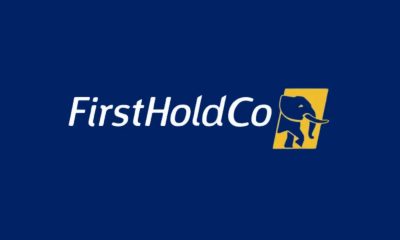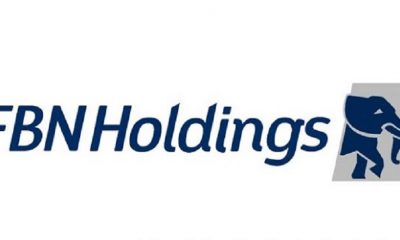Economy
Analysis of FBN Holdings FY 2023 and Q1 2024 Results

When Loans Go Bad.
Despite a turbulent decade, FBN Holdings, Nigeria’s oldest financial market lender, has demonstrated remarkable resilience in overcoming odds associated with a legacy institution. It has effectively tackled issues such as board governance recalibrations, high cost-to-income ratios (CIRs), poorly balanced loan asset distribution, large non-performing loans (NPLs), and overweight bank clearing house exposures to lower-tiered deposit-taking institutions. This period of adversity may potentially strengthen the financial group, making it more resilient, better managed, and focused; even as it looks into management resource capacity building and resolution of structural adjustments needed to reposition the bank post-recapitalization.
Recent public information will suggest that while the bank moves to quickly affirm a substantive managing director and set about the task of recapitalization; the work done to date by the previous management will further benefit from a swift resolution of the numbers from a post-CBN-oversight review around balances arising from digital banking operations returns, unreconciled balances, FX-related deposit movements, and standard loan balances review.
Analysts believe the CBN’s payment of Heritage Bank’s debt, as determined, not only signaled a positive outlook for the bank with the reduction of the forbearance balances on FBNH’s books; but strengthened its position as a systemically important bank (SIB).
Speaking anonymously, an insider expressed optimism about the bank’s future, stating, ‘With the Heritage Bank issue resolved, we can now focus on regaining an industry position more consistent with the bank’s age, pedigree, and collective staff expertise.’ This positive outlook should inspire confidence among stakeholders in FBN’s future since the banking arm continues to dominate the group’s operation.
Analysts observed that FirstBank has shown resilience in the face of internal and external difficulties, showing relatively strong financial performances in FY 2023 and Q1 2024. The asset repricing on loans and advances and off-balance sheet asset gains nudged gross earnings forward, thereby cushioning the heavy foreign exchange losses and rising operating expenses. FBNH’s gross earnings and pre-tax profit grew by +95.70% and +126.86% to N1.60trn and N350.59bn in FY 2023, and even higher growth performance was recorded in Q1 2024 (+181.43% and +325.15% for gross earnings and PBT, respectively).
The strong gross earnings and profit growth resulted in improved financial ratios, except for the cost of risk (CoR) and the non-performing loan (NPLR) ratios, reflecting rising funding costs and the deterioration in loan quality. However, the group’s niggling operating headache eased in Q1 2024 as the lender’s cost-to-income ratio (CIR) fell below 50% or below a 5-year average of 60.31%.
The improvement came partly from higher interest and non-interest incomes and sustaining this in 2024 is crucial, considering the forecast direction of macroeconomic indicators and monetary policy. For instance, rising inflation and currency volatility may lead to higher interest rates, a situation usually favourable to banks’ loans & advances and interest-based investments. Analysts believe the group’s improved core financial metrics in FY 2023 should re-establish its tier 1 status in the Proshare Bank Strength Index (PBSI) 2024 and raise its ranking ahead of competitors.
FBNH’s earnings have grown steadily by an average of 41.5% in the past five years, and its price-to-earnings (P/E) ratio sits at 2.74x compared to the industry average of 7.5x. The price-to-book value (PBV) is below 1 at 0.48x. Analysts expect investors to remain cautious about banking stocks while awaiting their recapitalisation strategies and future earnings projections.
Board of Directors
FBNH’s ability to manage post-leadership changes, whilst emerging as an institutional learning advantage, will continue to be tested; The market watches keenly how this recent change is managed.
With four (4) board members resigning, FBNH’s board members dropped to eight in FY 2023 from eleven (11) in FY 2022. However, Holdco appointed two directors (non-executive and independent non-executive directors) in Q1 2024, raising the total number of board members to ten (10). Also, FirstBank appointed two (2) new board members, raising the total number of board members to 14 in Q1 2024.
Gross Earnings
FBN Holding’s gross earnings have grown by an average of 19% annually. It settled at N1.60trn in FY 2023, rising by +95.70% from N815.16bn in FY 2022. The earnings growth came from interest and non-interest income, narrowed down to investment securities, loans and advances, gains from FVTPL (derivatives), and fees and commission income. Interest income had a higher contribution at 60% relative to 40% from non-interest income, reflecting that core operation drove the income growth. The +153.67% growth in non-interest income to N601.70bn stemmed from net gains from financial instruments at FVTPL (N246.08bn), net gain on sale of investment securities (N34.85bn) and fee and commission income (N226.45bn). The commercial banking segment remained the lead gross earnings driver, contributing 94%, while Merchant bank and asset management contributed 6%
The persistence of naira depreciation and aggressive rate hikes sustained interest and non-interest growth in Q1 2024. The group’s gross earnings grew by +181.43% to N730.30bn in Q1 2024 from N259.50bn in Q1 2023. The growth came from higher investments, loans & advances, fees and commission income, and net gains from financial instruments at FVTPL.
Profitability
FBNH’s strong gross earnings translated to profitability as the profit before tax and post-tax profit grew by +126.86% and +127.92% to N350.59bn and N310.37bn in FY 2023, respectively. The income from sales of investment securities, gains from financial instruments, FVTPL, dividend income, and other operating income cushioned the foreign exchange loss of N332.79bn, personnel expenses growth (+52.58%) and operating expenses growth (+49.59%). In addition, the group earned N66.34bn from digital banking in FY 2023, +20.41% higher than N55.10bn in FY 2023. This shows an improvement in digital penetration and product usage. The substantial profit growth nudged earnings per share to N8.59k in FY 2023 from N3.75k in FY 2022. Analysts expect the aggressive rate hike and naira volatility to sustain profitability performance in most of the 2024 quarters.
The group’s profitability tripled in Q1 2024 despite the foreign exchange loss incurred (N94.79bn) and higher operating expenses (+22.49%). The strong earnings translated to profitability, cushioning operating costs and FX exposure. The group’s pre-tax and post-tax profits rose by +325.15% and +315.78% to N238.53bn and N208.11bn respectively.
Financial Position
The group’s financial position improved in FY 2023. The total assets rose by +60.13% to N16.94trn in FY 2023 from N10.58trn in FY 2022, with a distribution of 50% to loans and advances, 17% to Investment securities, and Cash and balances with the CBN at 15%. Loan advances and investment securities dominating the total assets favour the group, ensuring the continuous inflow of interest income.
The group’s customer deposits rose by +49.68% to N10.66trn, and deposits from banks increased by +70.88% to N1.89trn in FY 2023. The customer’s deposits have a distribution of 28% current, 27% savings deposits, term deposits at 19%, and domiciliary deposits at 26%; the high savings deposits contributed significantly to the +118.04% growth in interest expense. The group’s shareholders’ funds improved by +75.45% to N1.75trn, driven by a +48.09% rise in retained earnings, +531.43% growth in foreign currency translation reserve, and +35.38% in statutory reserve. The sudden spike in foreign currency translation reserves is due to the CBN’s directive on prudent management of revaluation gains.
In Q1 2024, total assets climbed to N21.58trn from N11.09trn in Q1 2023. Increased loans & advances, investment securities, cash and balances with central banks drove the growth. While share capital remained constant, shareholders’ equity rose by +91.44% in Q1 2024 to N1.92trn, driven by a +83.57% rise in retained earnings and foreign currency translation reserve (+1292.46%).
Financial Ratios
FBNH’s key financial ratios improved in FY 2023. Underpinned by improved gross earnings and profitability, return on equity (ROAE) and Average Assets (ROAA) rose to 22.60% and 2.30% in FY 2023 from 14.50% and 1.40% in FY 2022. The net interest margin improved to 6.10% in FY 2023 as the group earned higher interest income over interest expense. The robust earnings scaled down the group’s cost-to-income ratio to 49.10%, implying better cost optimization. However, the heightened risk environment weighed on the cost of risk and nonperforming loan ratio, rising to 3.30% and 4.70%, respectively. The group’s loan-to-deposits ratio increased to 62.20% above the 65% statutory limit, exempting it from discretionary CRR debits.
The group’s financial ratios, especially profitability ratios, stayed positive in Q1 2024, except for the cost of risk and NPL. The return on equity (ROE) and assets (ROA) grew to 45.40% and 4.30%, respectively, with the cost-to-income ratio (CIR) falling to 43.10% from 60.40% in Q1 2023.
Valuation
In FY 2023, FBNH’s Price-to-Earnings (P/E) ratio dropped to 2.74x from 3.12x in FY 2022, reflecting higher market attraction relative to the previous year. The P/B ratio slightly increased to 0.48x but remained below 1, signifying that the bank is valued below its book value.
Share Price Movement
After downward fluctuations in Q1 2023, FBNH’s share price rebounded in April 2023, rising from N11.00k on April 27, 2023, to N23.55k on December 29, 2023. Analysts attributed the share price rally in July and beyond to the battle for ownership between Oba Otudeko and Femi Otedola. The share price rally persisted in Q1 2024, rising to a resistant price of N43.95k on March 19, 2024. By the beginning of Q2 2024, the share price began to tank, possibly due to investors’ pessimism about banking stocks, considering concerns about bank recapitalisation and falling earnings per share. The Holdco’s share price finally settled at N22.90k on June 11, 2024, leading to a negative year-to-date (YTD) return of -2.76%.
Peer Analysis: Climbing Along a Steep Ladder
Recapitalisation, consolidation and the emergence of new players in the Nigerian banking industry have shuffled the ranking of banks; some were forced behind as technology-driven ones took the spotlight. The oldest Nigerian bank was not exempted from the reshuffle; the bank slipped from the fourth position in asset size in 2019 to the fifth position in 2022 and has remained in the position, outran by UBA.
In terms of profitability, FirstBank climbed from 7th in 2019 to 4th in 2023 and 3rd by Q1 2024. The rapid growth was driven by the group’s strategic plan despite the corporate governance struggle.
FBNH’s consistently low dividend payout (hovering below N1) has kept the dividend yield behind that of other industry players. The group’s dividend yield slumped to the rear end by 2023, with ten (10) banks ahead of the entity, compared to six (6) banks in 2019.
The banking industry saw gross earnings and profitability climb to record highs, benefitting from MPR increases and naira devaluation. Among the tier 1 banks, Access Holding saw the highest gross earnings at N2.59trn, followed by other two banks with gross earnings above N2trn and FBNH and GTCO with earnings below N2trn at N1.59trn and N1.19trn respectively. The positions were slightly different coming to profitability, with Zenith Bank taking the lead at N795.96bn, ahead of UBA (N757.68bn) and Access Holding (N729.00bn), while FBNH had a more modest figure at N350.59bn behind GTCO. Analysts noted that despite GTCO being behind FBNH in gross earnings, GTCO was more profitable.
The banks’ high earnings caused earnings per share for most banks to grow to double digits except for FBNH, which had a single-digit EPS of N8.59k. Zenith Bank had the highest EPS at N21.55k ahead of Access Holding, implying that Access Holding incurred higher operating costs, eating into its profit relative to Zenith Bank. Nevertheless, Access Holding retained its position as having the largest customer deposit at N15.32trn ahead of UBA and Zenith, while GTCO had the lowest tier 1 bank deposit base size at N7.41trn.
GTCO, however, had the highest net interest margin (NIM), return on equity (ROE), and return on assets (ROA). Also, GTCO was the most cost-efficient financial lender, with a cost-to-income ratio (CIR) of 29.10%, while FBNH was the least efficient with a CIR of 49.08%. The fundamental valuation of the banks showed that GTCO had the highest price-to-book value at 0.96x, but FBNH had the highest price-to-earnings at 2.74x, while Access Holding had the least at 0.39x and 1.39x, respectively. This suggests that GTCO’s market value reflects its underlying book value and earnings more than its rivals.
Despite the high-interest rate environment, GTCO had a 1.80% cost of funds, significantly lower than its peers, with Access Holding having the highest at 4.90%. However, Zenith had the highest Cost of risk at 7.30%, while Access Holding had the lowest at 1.00%. GTCO shows better financial health than its rivals based on comparative financial statistics despite having the country’s top six banks’ lowest gross earnings, profit, and asset size.
Closing Thoughts
FBNH’s positive financial numbers would suggest that the internal governance challenges it experienced had a modest impact on its financial performance in FY 2023 and Q1 2024. To make this sustainable, analysts believe that it is important that the group resolves and tightens its governance architecture to prevent spillover effects in investors’ perceptions and consequently market valuation. We however do not believe that this will have a significant impact on its capital-raising efforts.
Based on FBNH’s banking license, the group intends to raise an additional N300bn in Tier 1 equity (CET 1) either through a public offer or a private placement. Although the capital raise plan is subject to shareholder approval, market intelligence suggests the group is more than capable of raising these sums from existing shareholders and select entities; and might not therefore proceed with the public offer. This is however subject to the Holdco’s reading of the recapitalization end-game of competitors; the opportunities related to funding size and actions taken around M&A’s (for which preliminary intel suggests the Holdco would not be involved in merger talks or contemplate a license adjustment).
First Bank’s future starts anew after the industry adjudged the successful tenure of the Adesola Adeduntan era. Our analysts anticipate HoldCo’s more hands-on involvement in the bank’s strategic direction in this new dispensation.
Economy
Seven Price Gainers Boost NASD OTC Bourse by 2.19%

By Adedapo Adesanya
Seven price gainers flipped recent declines at the NASD Over-the-Counter (OTC) Securities Exchange, raising the alternative stock market by 2.19 per cent on Friday.
According to data, the market capitalisation added N51.24 billion to end N2.389 trillion compared with the previous day’s N2.338 trillion, while the NASD Unlisted Security Index (NSI) climbed 85.65 points to close at 3,994.32 points, in contrast to the 3,908.67 points it ended a day earlier.
Business Post reports that the advancers were led by MRS Oil Plc, which improved its value by N13.00 to N200.00 per share from N187.00 per share, FrieslandCampina Wamco Nigeria Plc gained N7.40 to settle at N91.55 per unit versus the previous day’s N84.15 per unit, Central Securities Clearing System (CSCS) Plc appreciated by N6.08 to N71.00 per share from N64.92 per share, Afriland Properties Plc added 66 Kobo to finish at N17.17 per unit versus N16.51 per unit, IPWA Plc rose 37 Kobo to N4.15 per share from N3.78 per share, First Trust Mortgage Bank Plc grew by 11 Kobo to N1.20 per unit from N1.09 per unit, and Food Concepts Plc went up by 10obo to N3.70 per share from N3.60 per share.
On the flip side, there were two price losers led by Geo-Fluids Plc, which depreciated by 28 Kobo to N3.32 per unit from N3.60 per unit, and Industrial and General Insurance (IGI) Plc dropped 5 Kobo to sell at 45 Kobo per share from 50 Kobo per share.
Yesterday, the volume of trades went down by 92.0 per cent to 3.7 million units from 45.8 million units, the value of transactions fell by 59.4 per cent to N84.5 million from N208.2 million, while the number of deals went up by 7.7 per cent to 42 deals from 39 deals.
CSCS Plc remained the most traded stock by value (year-to-date) with 32.6 million units exchanged for N1.9 billion, trailed by Geo-Fluids Plc with 119.6 million units valued at N470.3 million, and Resourcery Plc with 1.05 billion units traded at N408.6 million.
Resourcery Plc closed the day as the most traded stock by volume (year-to-date) with 1.05 billion units sold for N408.7 million, followed by Geo-Fluids Plc with 119.6 million units worth N470.3 million, and CSCS Plc with 32.6 million units worth N1.9 billion.
Economy
FX Demand Worries Weaken Naira to N1,346/$1 at Official Market

By Adedapo Adesanya
The Naira weakened further against the United States Dollar in the Nigerian Autonomous Foreign Exchange Market (NAFEX) on Friday, February 20, by N4.97 or 0.37 per cent to N1,346.32/$1 from the N1,341.35/$1 it was transacted on Thursday.
Heightened FX demand tilted the market toward the downside yesterday, exerting upward pressure on rates despite efforts by the Central Bank of Nigeria (CBN) to stabilise the foreign exchange market.
Also in the official market, the domestic currency depreciated against the Pound Sterling during the session by N9.39 to sell for N1,815.25/£1 versus the previous day’s N1,805.86/£1, and lost N7.33 against the Euro to close at N1,584.62/€1 compared with the preceding session’s N1,577.29/€1.
The story was not different for the Nigerian Naira at the GTBank FX desk, where it depleted against the Dollar by N7 on Friday to quote at N1,356/$1 versus the N1,349/$1 it was sold a day earlier, but remained unchanged in the black market at N1,370/$1.
It was observed that risky sentiment among Foreign Portfolio Investors (FPIs) contributed to the FX market, amid fears of hot money flight due to capital gains tax and other factors.
As for the cryptocurrency market, it was mostly green yesterday in reaction to a Supreme Court verdict dismissing a fresh 10 per cent global levy by President Donald Trump.
The apex court on Friday described Mr Trump’s global tariff rollout as illegal. The decision did not clarify what should happen to tariff revenue already collected, and it doesn’t necessarily spell the end of the trade agenda, with multiple legal and executive avenues still available.
Litecoin (LTC) grew 2.7 per cent to $55.00, Cardano (ADA) appreciated 2.6 per cent to trade at $0.2815, Binance Coin (BNB) expanded by 2.6 per cent to $627.19, Dogecoin (DOGE) recouped 1.3 per cent to quote at $0.1, Ripple (XRP) jumped 0.7 per cent to $1.43, Solana (SOL) improved by 0.5 per cent to $84.15, and Ethereum (ETH) soared 0.1 per cent to $1,962.78.
However, Bitcoin (BTC) lost 0.2 per cent to sell for $67,850.49, while the US Dollar Tether (USDT) and the US Dollar Coin (USDC) traded flat at $1.00 each.
Economy
Fidson, Jaiz Bank, Others Keep NGX in Green Territory

By Dipo Olowookere
A further 0.99 per cent was gained by the Nigerian Exchange (NGX) Limited on Friday after a positive market breadth index supported by 53 price gainers, which outweighed 23 price losers, representing bullish investor sentiment.
During the trading day, the trio of Jaiz Bank, Fidson, and NPF Microfinance Bank chalked up 10.00 per cent each to sell for N11.00, N86.90, and N6.27, respectively, while Deap Capital appreciated by 9.96 per cent to N7.62, and Mutual Benefits increased by 9.94 per cent to N5.42.
Conversely, Secure Electronic Technology shed 10.00 per cent to trade at N1.62, Sovereign Trust Insurance slipped by 9.73 per cent to N2.32, Ellah Lakes declined by 7.91 per cent to N12.80, International Energy Insurance retreated by 5.56 per cent to N3.40, and ABC Transport moderated by 5.26 per cent to N9.00.
Data from Customs Street revealed that the insurance counter was up by 2.52 per cent, the industrial goods sector grew by 2.28 per cent, the banking space expanded by 1.43 per cent, the consumer goods index gained 1.23 per cent, and the energy industry rose by 0.05 per cent.
As a result, the All-Share Index (ASI) went up by 1,916.20 points to 194,989.77 points from 193,073.57 points, and the market capitalisation moved up by N1.230 trillion to N125.164 trillion from Thursday’s N123.934 trillion.
Yesterday, investors traded 820.5 million stocks valued at N28.3 billion in 63,507 deals compared with the 898.5 million stocks worth N38.5 billion executed in 61,953 deals, showing a jump in the number of deals by 2.51 per cent, and a shortfall in the trading volume and value by 8.68 per cent and 26.49 per cent apiece.
Closing the session as the most active equity was Mutual Benefits with 79.0 million units worth N427.1 million, Zenith Bank traded 44.0 million units valued at N3.8 billion, Chams exchanged 43.9 million units for N182.0 million, AIICO Insurance transacted 42.4 million units valued at N179.8 million, and Veritas Kapital sold 36.0 million units worth N90.6 million.
-

 Feature/OPED6 years ago
Feature/OPED6 years agoDavos was Different this year
-
Travel/Tourism10 years ago
Lagos Seals Western Lodge Hotel In Ikorodu
-

 Showbiz3 years ago
Showbiz3 years agoEstranged Lover Releases Videos of Empress Njamah Bathing
-

 Banking8 years ago
Banking8 years agoSort Codes of GTBank Branches in Nigeria
-

 Economy3 years ago
Economy3 years agoSubsidy Removal: CNG at N130 Per Litre Cheaper Than Petrol—IPMAN
-

 Banking3 years ago
Banking3 years agoSort Codes of UBA Branches in Nigeria
-

 Banking3 years ago
Banking3 years agoFirst Bank Announces Planned Downtime
-

 Sports3 years ago
Sports3 years agoHighest Paid Nigerian Footballer – How Much Do Nigerian Footballers Earn



















